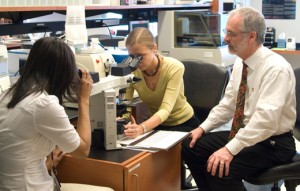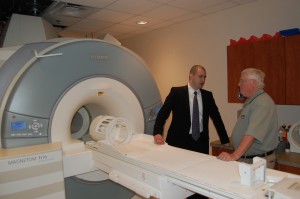Ted Johnson, MD, says the United States is not prepared to meet the care needs of the next wave of aging older adults. “The statistics nationally show that by the year 2030, the demographics of every U.S. state will be similar to that of Florida today. Another way of looking at that: the number of people age 65 and older in the state of Georgia will increase 100 percent by 2020. We’re facing a tremendous aging wave, and we don’t know how we’re going to meet the needs of that group.”

Ted Johnson, MD
Johnson is leading the Emory Center for Health in Aging, a program that addresses health care issues affecting the rapidly growing senior population in the United States through research, clinical care, community outreach and education.
Johnson also serves as director of the Division of Geriatrics and Gerontology, Department of Medicine, Emory University School of Medicine, and is associate director and Atlanta site director for the Birmingham/Atlanta VA Geriatric Research, Education, and Clinical Center.
Johnson says he is committed to a new vision of aging. His agenda for reaching that vision:
Target conditions associated with disability common in seniors: We need to target specific disease processes–Alzheimer’s, urinary/fecal incontinence, obesity, congestive heart failure–and develop breakthrough treatments and better predictive models so that we can understand what it is that makes people with these chronic conditions get out of control and currently, end up in nursing homes.
Build livable communities: We need to build communities that will sustain people as they age, and that means livable and walkable communities, with public transportation and access to stores and food. We need urban planning, as well as rural planning. Aging people shouldn’t lose their ability to live independently because they can no longer drive a car.
Read more















